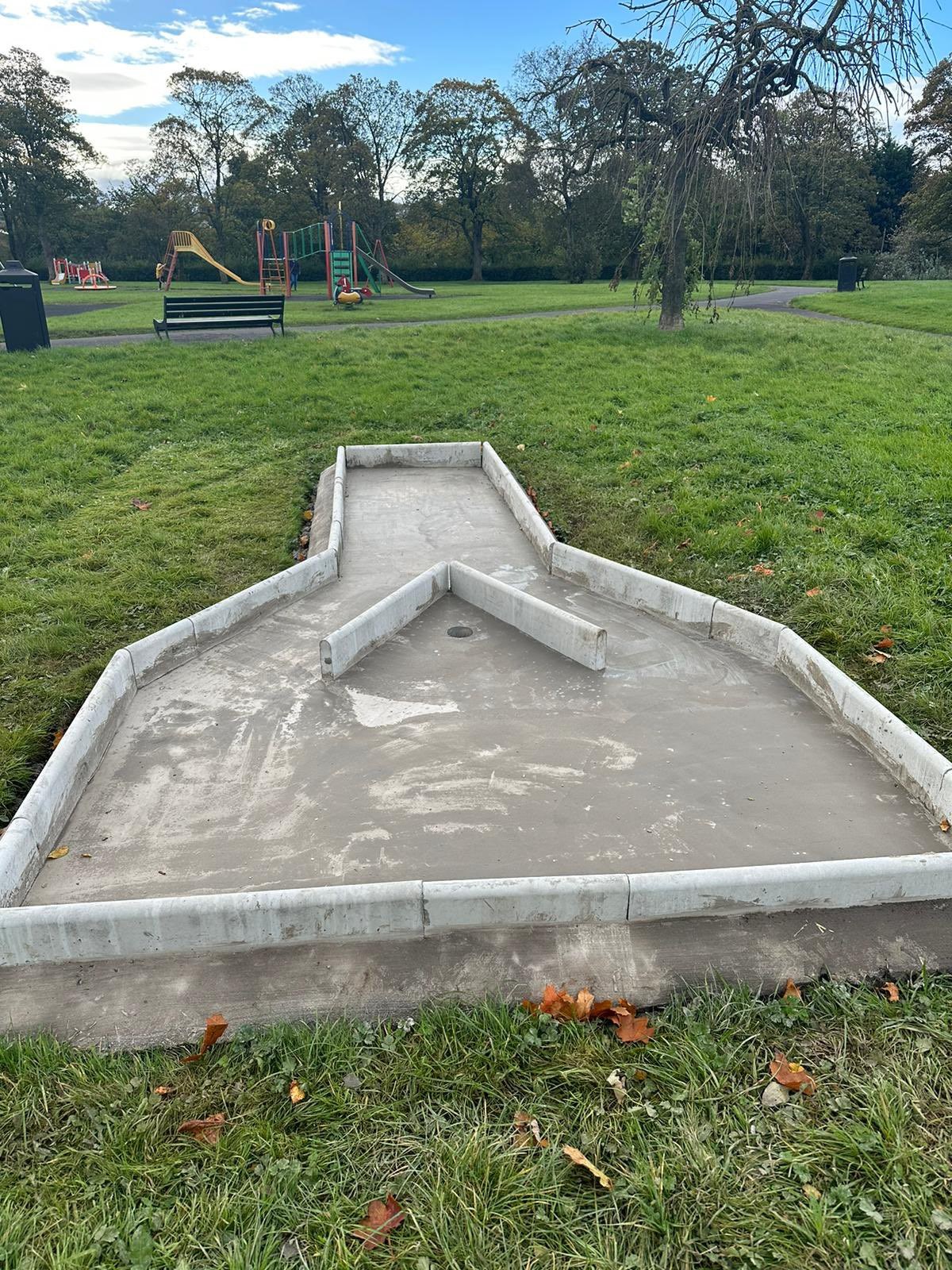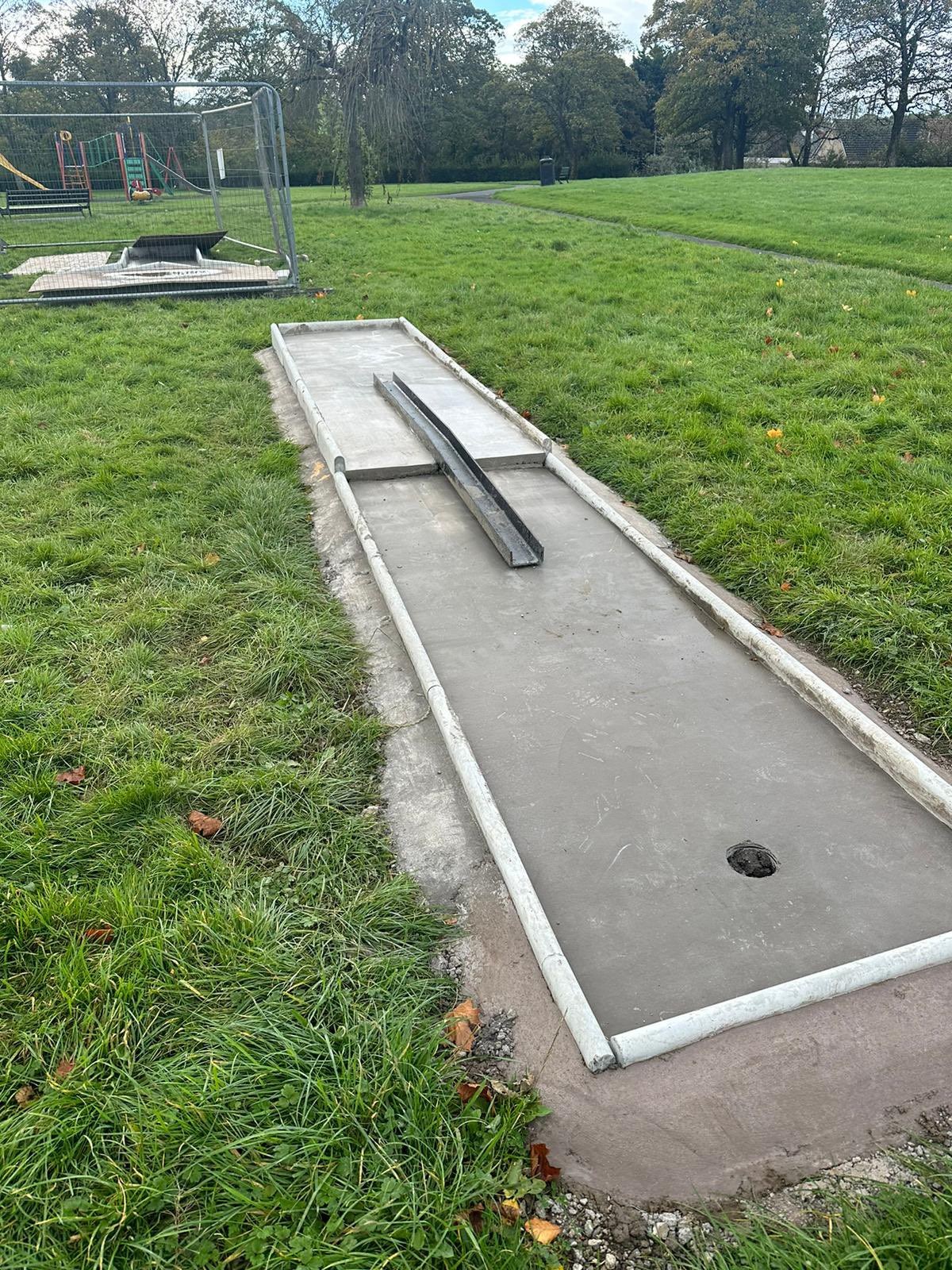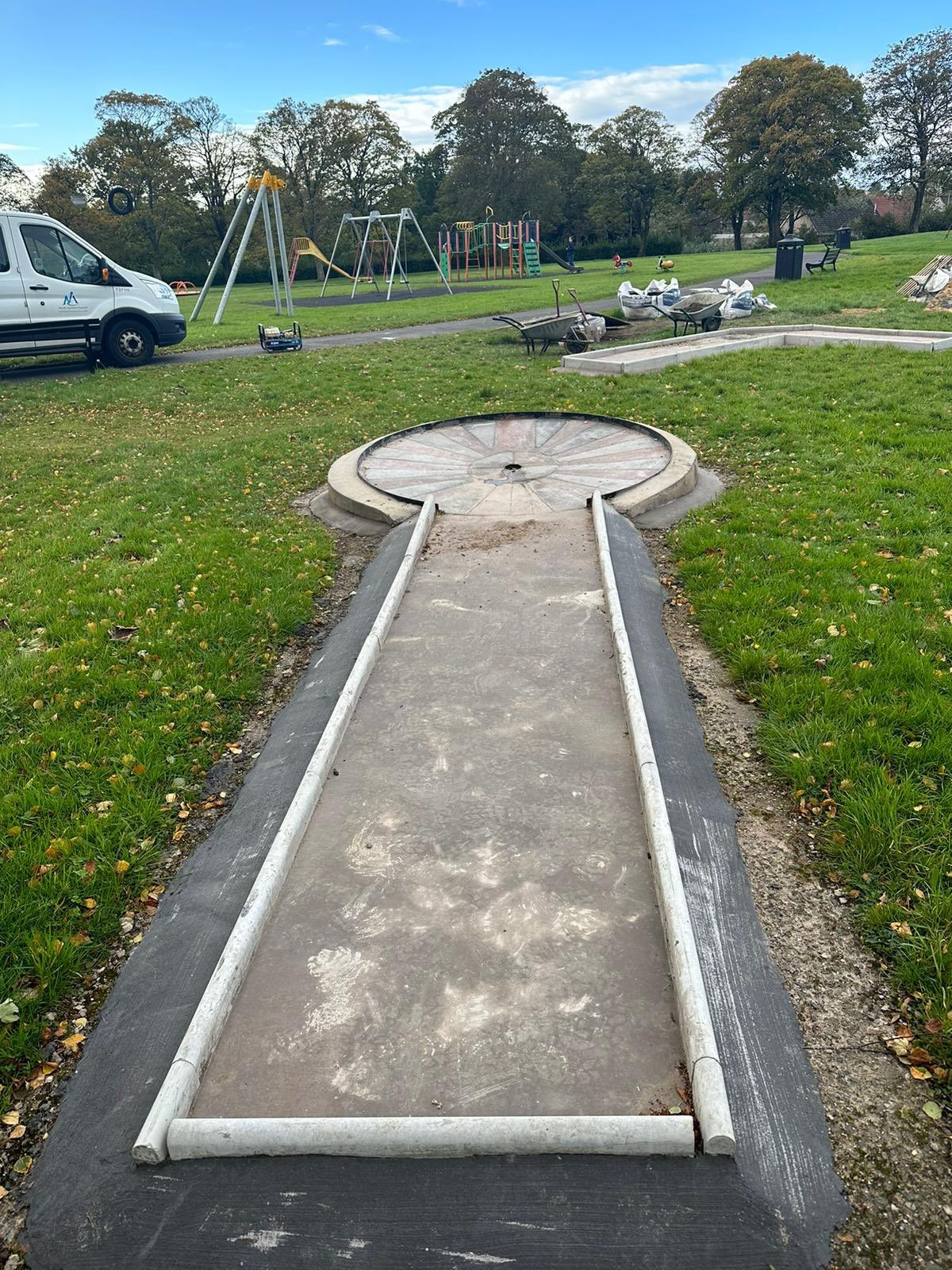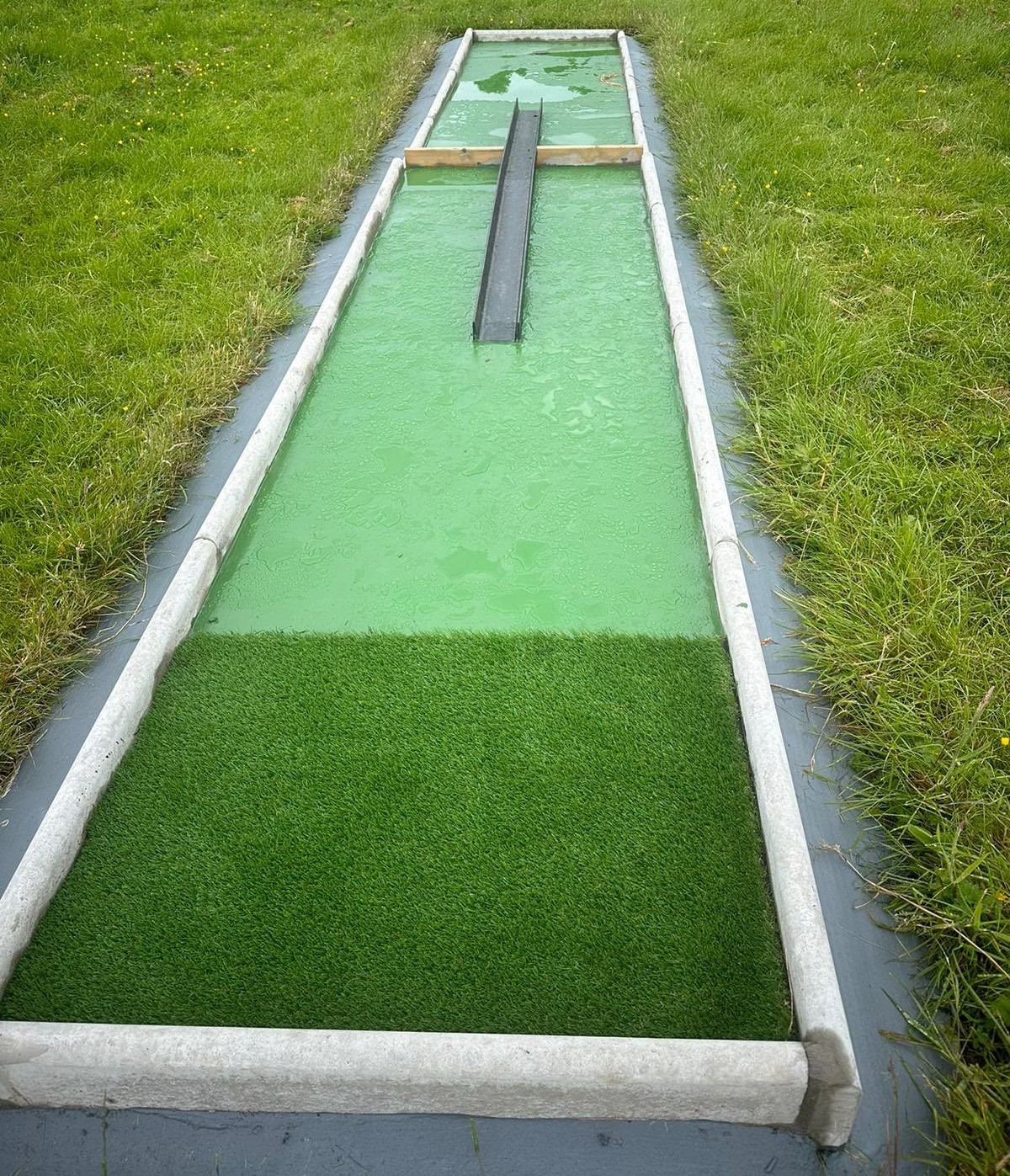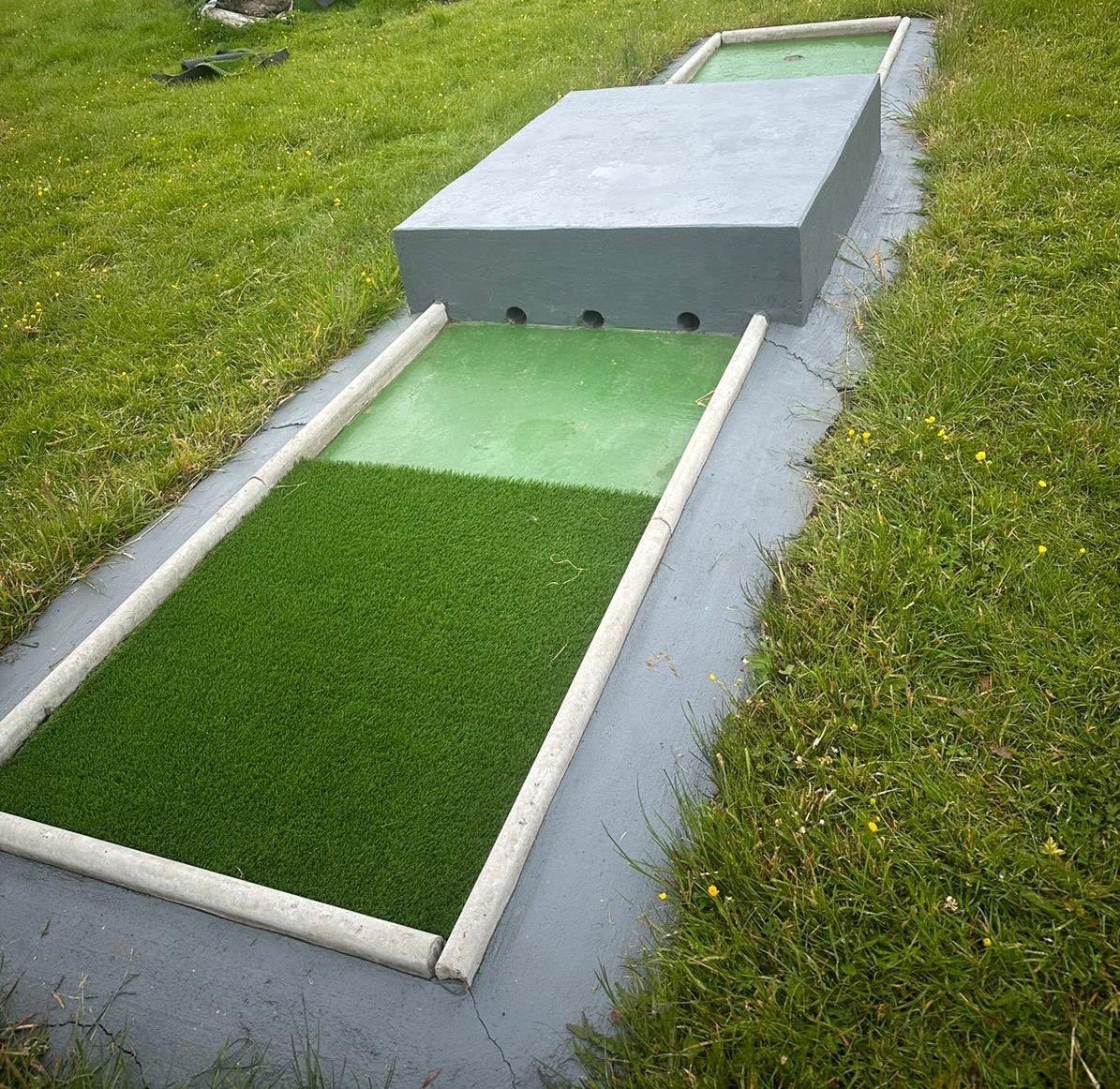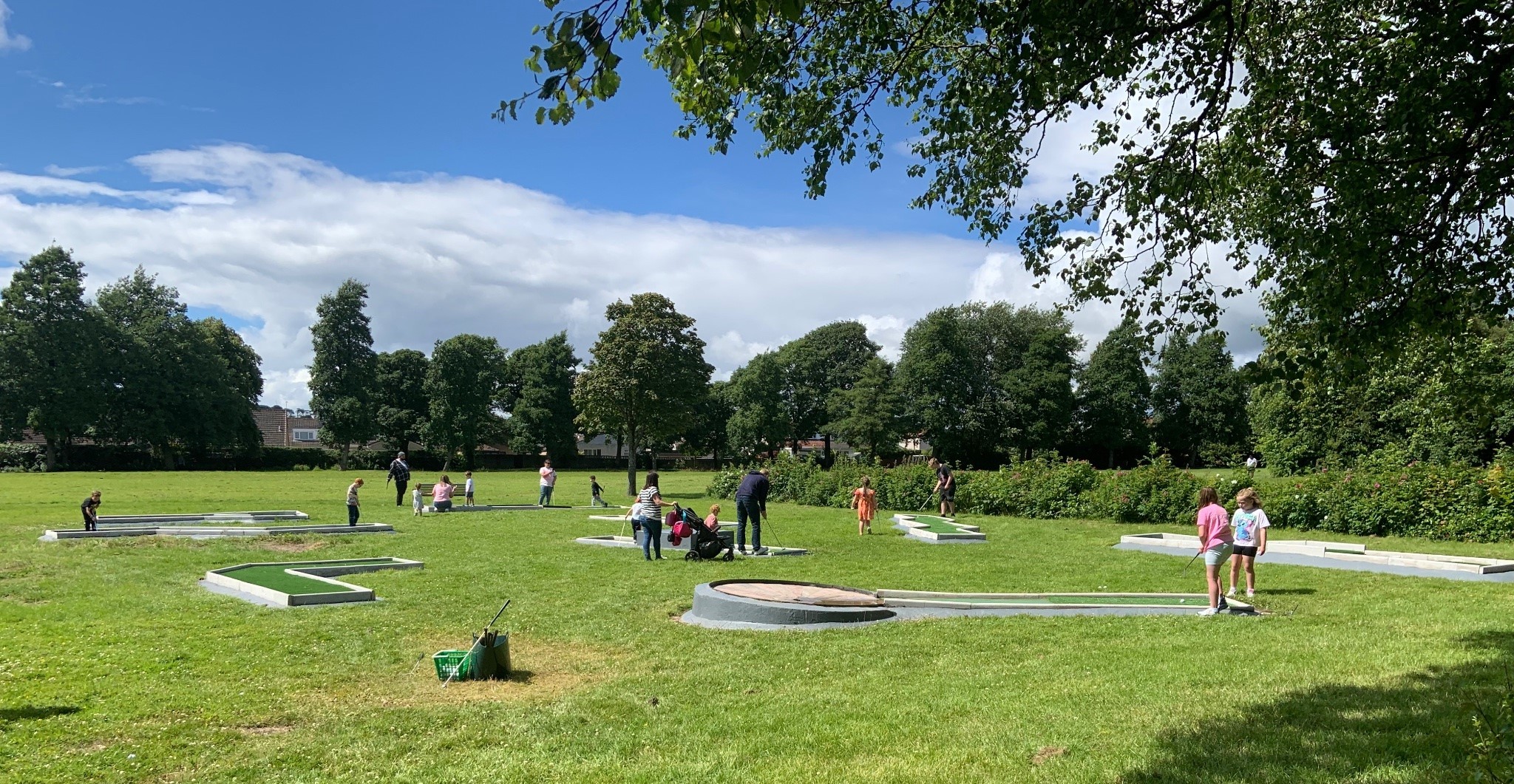Unpaid work teams get creative with crazy golf
North Ayrshire Justice Services Unpaid Work Team are responsible for the delivery of unpaid work across North Ayrshire and operate from their office and workshop facility in Stevenston. The Unpaid Work Team were approached by Councillor Donald Reid, looking for assistance with repairing some of the crazy golf structures at McGavin Park in Kilwinning.
The park consists of a large lawn area and mature trees. It is home to an enhanced play area, outdoor gym, tennis court and crazy golf. The park is also one of the few to have public toilets which open during school holidays (April to October) and by prior arrangement for group visits.
The park is managed by North Ayrshire Council although Kilwinning Community Events Group installed and maintain the sports equipment and much of the play equipment in the park. Part of the group’s work is to develop the community asset for the wider community, and they rely on volunteers to help maintain bedding plants, litter picking, to open, close and clean the toilets, as well as with events at the park.
Councillor Donald Reid, Chair of Kilwinning Community Events said, “the group struggled for years to get the skill base to renovate the crazy golf and it is part of the park’s history so it was important the original aspects of the crazy golf were maintained with a Rotary and round table links to the original project”.
The Unpaid Work Team, led by Supervisor Allan Auld put together a plan to undertake the necessary work, identifying what material would be required, associated costs and timescales. Allan worked with his team to create new structures for those that could not be repaired.
Kilwinning Community Events Group were able to provide the materials that allowed the Unpaid Work Teams to begin work on mending some of the existing structures and clearing the area for new structures. There were multiple setbacks due to the weather conditions, which meant concrete could not be mixed and set.
During the planning stages Unpaid Work Teams learned how to think creatively with a vision. Following this, teams learned how to lay kerb stones, mix concrete, then to pour and level it off – as well as how to add extra fittings such as pipes, holes, or to create curves and hills. Several of the structures also had artificial grass, so the teams learned how to measure, cut and then secure this to the structure.
Tracy Nimmo, UPW Team Manager said “The benefits projects like these bring to the local community is paramount to reparation and reintegration of our service users completing the works. Service users get a sense of pride completing visible projects in our communities, especially ones that make a difference to the children and families that benefit from them. This crazy golf site has been in disrepair for many a year, to see it restored for families to use in the summer months is at the heart of what we like to see from the Justice Services Unpaid Work Team. A service everyone benefits from equally”.
Cllr Donald Reid said “the community feedback has been extremely positive following the works over the last three years to enhance the parks facilities. The crazy golf restoration is now complete, and we are grateful to Justice Services for the support to re-establish this feature in the park for the benefit of visitors. This was one of those projects that simply would not have happened if it were not for the support of the service. The group was keen to see the works as planned complete for the 140th anniversary of the park’s gifting to the community”.
If you feel your organisation or community group would benefit from the support of Unpaid Work then referrals should be made via telephone to George Hannah, Community Payback Coordinator – Tel: 01294 608900.
Background
A Community Payback Order is a sentence imposed by the Courts. It offers Courts a disposal for use as a first response and for use with those who have defaulted on payment of a fine. A Community Payback Order is a sentence served in the community rather than in a prison.
An unpaid work requirement as part of a CPO gives the person the opportunity to contribute in a positive way to local communities. Work undertaken as part of unpaid work does not replace paid employment but enhances work carried out by the local authority and community groups.
People who undertake unpaid work have an opportunity to repay their local communities for the harm caused by their offending. They pay in time and hard work whilst developing new skills and confronting their offending behaviour.
Unpaid work allows the person to develop and improve their social skills making positive connections with people and communities. The unpaid work requirement also allows for “other activity” to support people by providing educational support and guidance to enhance their employability status.
John McGavin, 1814-1881; benefactor to Kilwinning
Born in Kilwinning in 1814, John McGavin trained for service in the Church, but never having had good health, abandoned his studies. In about 1832, he started work for George Gardner, grain merchant in Glasgow, which led to him forming a partnership with his brother-in-law in the new firm of Harvie and McGavin.
In 1846, he became active in speaking out in favour of the Temperance movement, becoming chairman of the Scottish Temperance League. He was a keen patron of the arts and provided substantial funding when the Glasgow Institute of Fine Arts moved to new premises in 1880. He had developed a keen interest in the expansion of the railways and became something of an authority. He served on several railway committees, and at the time of his death, was chairman of the Forth and Clyde Junction Company. At that time, he was also a director of the Chamber of Commerce.
John McGavin died suddenly whilst walking along the banks of the Garnock on the evening of 12th July 1881. As well as his will leavening legacies for religious and charitable purposes, £7,000 was allocated for the formation of a public park in Kilwinning. This park was formally gifted to the town on 20th September 1884.
On his death, he was described as “modest and unaspiring, gentle and generous during his life, munificent in the bequests which he made in anticipation of his death, the benign influence of such a man cannot be estimated, and it will never be known.


